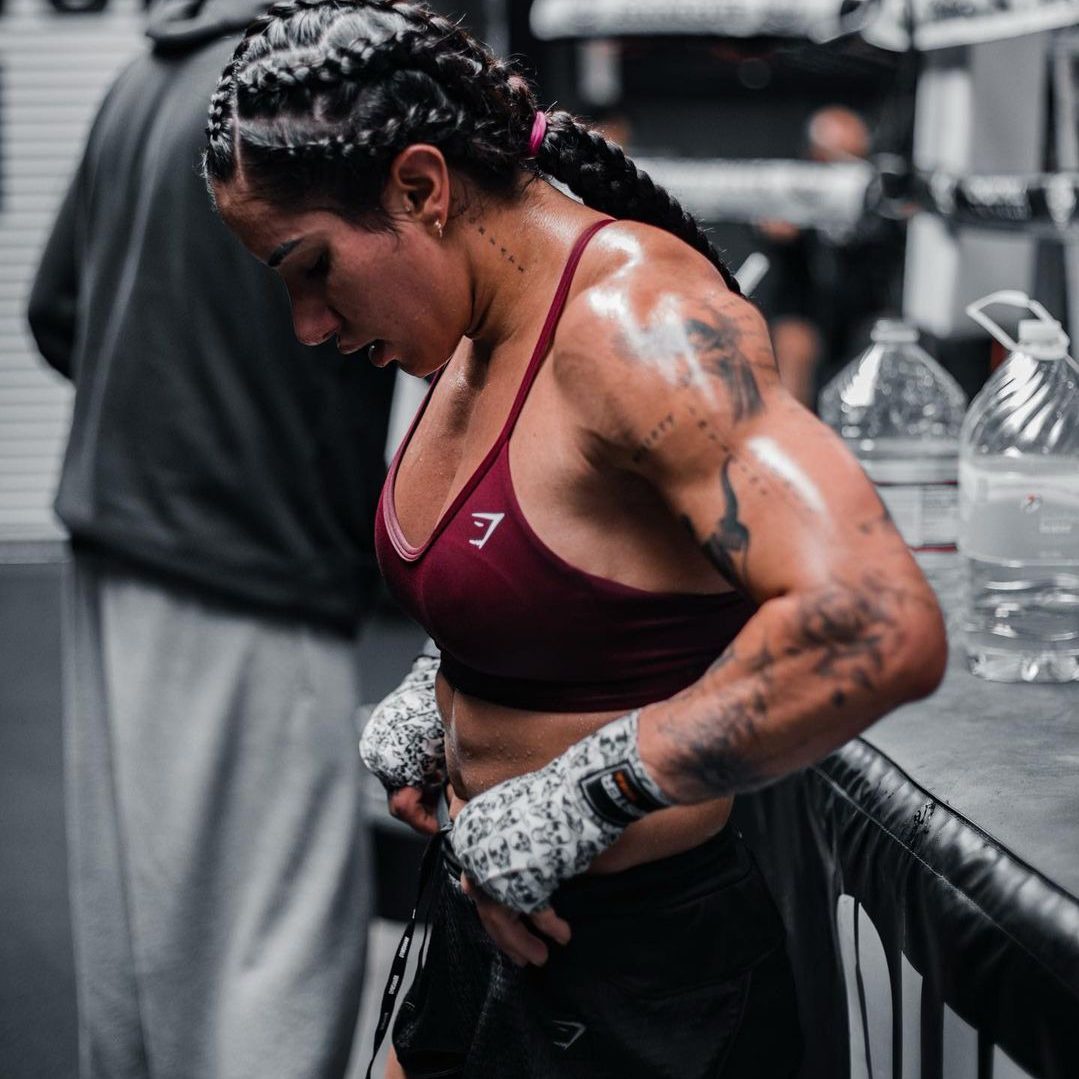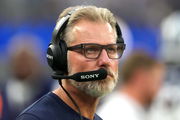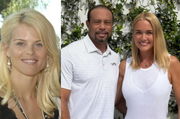

Stefi Cohen is a very talented individual who has made a name for herself in bodybuilding and academics. Dr. Cohen is a professional boxer and a 25-time World Powerlifting champion from Venezuela, now living in the United States. The fitness coach and athlete’s personal bests are 545 Lbs deadlift, 253 lbs chest, and 463 lbs squat. The powerlifter achieved this feat despite weighing only 123 pounds at 5 feet 3 inches.
Watch What’s Trending Now!
Powerlifter Cohen has amassed a fan following of 1.1 million on Instagram. Her Bio reads “No BS Fitness Content,“ and she means it! The strong fitness coach often advises her fans on the best way to exercise. Earlier, the pro boxer took to social media to chastise the Fitness community for blaming genetics for their inability to grow muscles. Let us dig deeper into her stern advice.
ADVERTISEMENT
Stefi Cohen believes people make mistakes in the execution of the exercise
In the Instagram reel, Cohen jumps straight to the point, saying, “You don’t have sh*t genetics. Your Hamstring doesn’t grow because you don’t know how to train them.” She further adds that this is true for all body parts, not just the hamstrings. “It’s often the case when we are talking about a stubborn or weak body part that we are trying to grow.” The athlete is critical of people who play the blame game rather than focusing on the right exercise method. The former soccer player adds, “You are not performing the exercise correctly and you are not choosing the right exercise either.”
View this post on Instagram
There was a point in Cohen’s career when she felt a lot of pain in her body, and even walking was problematic. She had hit a plateau in her efforts to increase her powerlifting strength and endurance. So she tuned into her body’s struggle and focused on recovery. The Dr. of Physical Training is a big proponent of ‘autoregulation‘, that is, understanding the strengths and limitations of the body and incorporating them into training.
ADVERTISEMENT
Cohen criticizes excessive focus on progressive overload
The athlete believes people give unnecessary importance to ‘progressive overload‘ rather than form. She adds, “It seems so obvious but so often overlooked at the expense of hyper-focusing on Progressive overload.” Progressive overload is a workout where weights are increased after every rep to tire the muscles. This helps build muscles in a short period of time.
ADVERTISEMENT

ADVERTISEMENT
She explains her point with the help of an example of a hamstring curl exercise. She states, “In this exercise, the goal is to stabilize our hips as much as possible so that we can stress and apply as much tension to the hamstring muscle as possible.” According to her, most people focus on how much weight to add to this exercise without regard to the right form to build the hamstrings. This poor execution renders the exercise “obsolete.”
Top Stories
Cowboys Fire Defensive Coordinator Matt Eberflus: Contract, Salary, NFL Earnings & More

Ross Chastain Labels NASCAR Driver “The Most Punchable Face” to Excuse Himself Over Punchgate Controversy

Arman Tsarukyan Back in Play as Justin Gaethje Staph Infection Rumors Causes Fan Panic Before Paddy Pimblett Fight

10 Biggest NFL Draft Busts of the Last Decade, Including Trey Lance and Justin Fields

Blue Jays To Ditch Kyle Tucker For Beloved Toronto Star As Toronto Bids To Bolster Vladimir Guerrero Jr., Per Insider

Ex-Wife Elin Nordegren’s Reaction to Tiger Woods Dating Vanessa Trump Speaks Volumes

Read More: Who Is Stefi Cohen, and How Is She Rattling the Boxing World?
In a gist, the athlete wants to drive the following point home: “We all have body parts that are harder to grow, but to blame it on genetics is lame. More often than not, it’s a product of poor exercise selection, inadequate volume, intensity, and most importantly, poor execution.” While genetics might have a minuscule role to play, it is not the only contributing factor to muscle growth. Do you also think genetics play a part in bodybuilding? Share your thoughts with us.
ADVERTISEMENT
Watch This Story: “U Look Enormous”: Female Bodybuilder’s Massive Leg Muscles Stuns Fitness World.
ADVERTISEMENT
ADVERTISEMENT
ADVERTISEMENT

